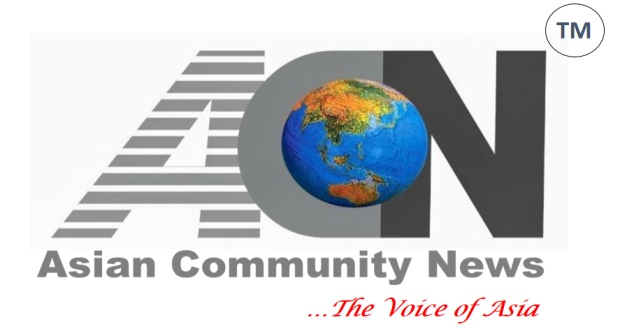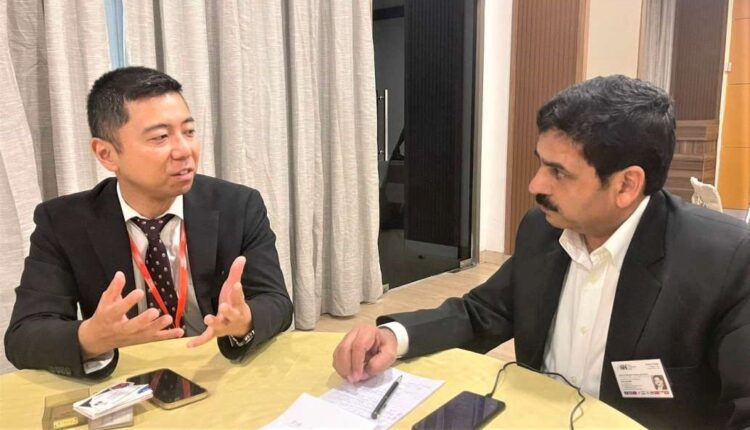Japan’s NEDO (New Energy and Industrial Technology Development Organization) helping India realize carbon neutrality
Green Hydrogen Push: In early November, a Yamanashi Hydrogen Company team visited the Manesar plant of Maruti Suzuki in Gurugram as part of the Pre-FS program.
PUNE: In its role of an innovation accelerator, Japan’s New Energy and Industrial Technology Development Organization (NEDO) is helping India to realize carbon neutrality through a demonstration of Japanese technology and systems for energy conservation. An offshoot of Ministry of Economy Trade and Industry (METI), Japan, NEDO has been contributing to obtaining energy security by reducing energy consumption through the dissemination of Japan’s highly advanced technology in India since 2008.
On 15th August, 2021, Prime Minister Narendra Modi had launched the National Hydrogen Energy Mission to help the government in meeting its climate targets and making India a green hydrogen hub.
Ever since its inception in India, NEDO has undertaken a series of projects in India that include the latest in the series – Pre-Feasibility Study on Conformity with Demonstration Requirements for Hydrogen Technology to Achieve Efficient Thermal Operation in Indian Factories. The project has been jointly taken up by Yamanashi Hydrogen Company and Suzuki Motor Corp at its Manesar-based automotive factory in Gurugram during the current year.
In an interaction with the Asian Community News (ACN) Network in Pune on the side lines of IJBC’s Konnichiwa Pune 2022 event, Yoshiro KAKU, Chief Representative (India), NEDO said that the Yamanashi Hydrogen Company has already executed this project in the Yamanashi prefecture in Japan.
In Feb 2022, the Yamanashi Prefectural Government, Tokyo Electric Power Company Holdings, Inc., and Toray Industries, Inc., announced the establishment of Yamanashi Hydrogen Company, Inc., Japan’s first power-to-gas (P2G) company.

Yoshiro KAKU said that the project is divided into three phases. The first phase is Pre-Feasibility Study (FS), second is FS, and the third phase is demonstration.
“First is kind of research phase and not about introducing any equipment. It will be solar-based and Maruti Suzuki has a huge rooftop solar facility at its Manesar plant. By using the solar power, which is the source of renewable energy, the water can be split into oxygen and hydrogen through electrolysis process. The hydrogen so produced is called green hydrogen,” he added.
Current Status surrounding Hydrogen in India
- India concentrates on supporting green hydrogen/ammonia, backed by solar power’s potential (bidding price : INR 1.99 in December 2020).
- India aims to become a global hub of hydrogen.
- Some analyses say that India’s green hydrogen is highly cost competitive in the world. (According to an analysis by TERI, a local think tank, the cost of hydrogen production is expected to be “$2/kg in 2030, $1/kg in 2050”)•
- The Indian government announced the “National Hydrogen Energy Mission” in 2021, and is currently promoting and considering various policies to promote hydrogen.
- Demand for hydrogen in India is estimated to increase five-fold, mainly in the manufacturing and transportation sectors.
- Against these backgrounds, India’s public or private conglomerate companies are stepping up their hydrogen efforts. Also, US and European companies are actively cooperating with them.
Yoshiro KAKU said that the first stage launched in June this year, would take one year and the second and third phase also are likely to take one more year each. So in 2024, probably the Yamanashi Hydrogen Company will go for the demonstration.
“After the completion of successful demonstration, the company will plan dissemination of this technology at other places as green hydrogen is important for India. Toray will just provide technology and might tie up some Indian company,” added the Chief Representative of NEDO, India.

Shigekazu Suenaga, Chief Representative for India, Toray recently told Asian Community News (ACN) Network that a team of Yamanashi Hydrogen Company visited the Manesar plant of Maruti Suzuki in Gurugram in early November as part of the Pre-FS program.
Earlier while speaking at the India-Japan Economic Forum early this year in the presence of the PM Modi, Suenaga said that Toray has been developing water electrolysis technology using its proprietary hydrocarbon-based polymer electrolyte membranes, which will dramatically improve efficiency and contribute to significant reduction in hydrogen costs, and that it aims to build a global supply chain for manufacturing green hydrogen with Japanese and Indian partners in the country. He explained Toray’s intention to contribute to the achievement of carbon neutrality with the power of its advanced materials.
This year only, NEDO facilitated another significant Pre-FS Demonstration project of Ammonia Co-Firing at existing Coal Fired Power Plant in the state of Gujarat jointly by IHI Corp and Kowa Company.
Previously, NEDO facilitated Micro-Substation for electrification using transformers for Large-Capacity Instruments with Nissin Electric, Electric Mobility Operation System for realizing Last-mile Transportation with Panasonic, and FS Energy optimization in chemical industry with Toyo Engineering Corp in the year 2020
Since 2014, NEDO has executed many projects. Waste Heat Recovery System of Cement Plant with Kawasaki Heavy Industry 2001-2004 at Vishnupuram was its first project launched in India, and it has been completed successfully.
About: Yoshiro KAKU, , Chief Representative (India), NEDO, METI
He has worked at METI for about 20 years. Prior to the position, he was engaged in policymaking regarding technological innovation such as the revision of Japan’s IT Strategy and Roadmap for utilizing drones. In addition, he contributed to the rule amendment for effectively protecting critical trade secrets.
He has also been involved in environment and energy related policies. He was a member of the study team for drafting Japan’s Long-term Strategy under the Paris Agreement. Moreover, he was in charge of policies for promoting waste disposal and recycling, and securing natural resources including rare metals.
Besides above, he was engaged and have experience in reconstruction of the area affected during the March 2011 Great East Japan Earthquake.
Yoshiro Kaku graduated from the University of Tokyo, Faculty of Law, and earned LL.M. (Master of Law) from the University of Pennsylvania Law School. He was also a visiting scholar at the Berkeley Center for Law and Technology.



